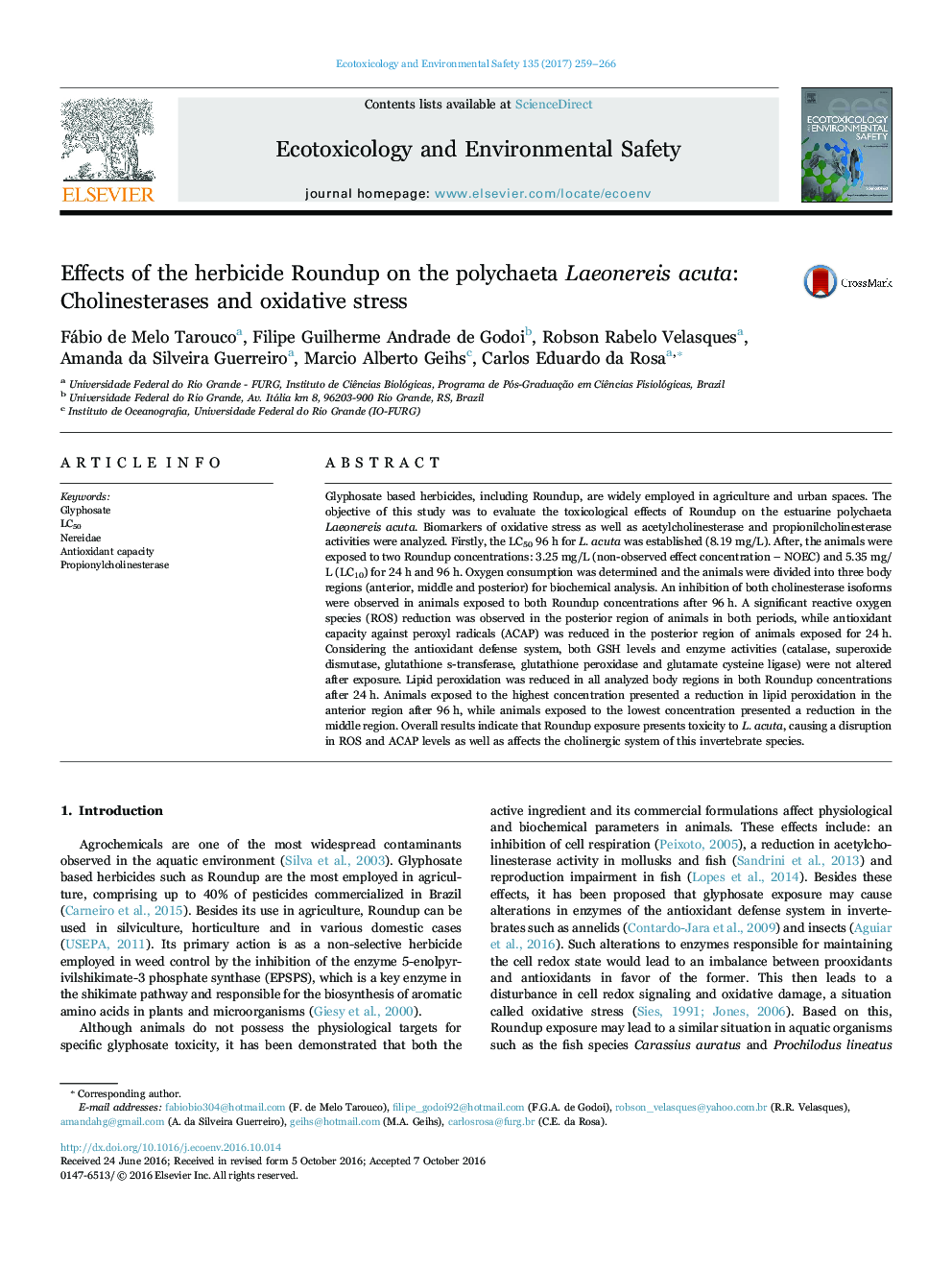| Article ID | Journal | Published Year | Pages | File Type |
|---|---|---|---|---|
| 4418979 | Ecotoxicology and Environmental Safety | 2017 | 8 Pages |
•Glyphosate-based herbicide toxicity was checked in the polychaeta Laeonereis acuta.•LC50 96 h was similar to observed for other aquatic organisms (8.19 mg/L).•Polychaeta cholinesterases are inhibited by the herbicide.•Oxidative stress was observed after polychaeta exposure to sub-lethal concentrations.
Glyphosate based herbicides, including Roundup, are widely employed in agriculture and urban spaces. The objective of this study was to evaluate the toxicological effects of Roundup on the estuarine polychaeta Laeonereis acuta. Biomarkers of oxidative stress as well as acetylcholinesterase and propionilcholinesterase activities were analyzed. Firstly, the LC50 96 h for L. acuta was established (8.19 mg/L). After, the animals were exposed to two Roundup concentrations: 3.25 mg/L (non-observed effect concentration – NOEC) and 5.35 mg/L (LC10) for 24 h and 96 h. Oxygen consumption was determined and the animals were divided into three body regions (anterior, middle and posterior) for biochemical analysis. An inhibition of both cholinesterase isoforms were observed in animals exposed to both Roundup concentrations after 96 h. A significant reactive oxygen species (ROS) reduction was observed in the posterior region of animals in both periods, while antioxidant capacity against peroxyl radicals (ACAP) was reduced in the posterior region of animals exposed for 24 h. Considering the antioxidant defense system, both GSH levels and enzyme activities (catalase, superoxide dismutase, glutathione s-transferase, glutathione peroxidase and glutamate cysteine ligase) were not altered after exposure. Lipid peroxidation was reduced in all analyzed body regions in both Roundup concentrations after 24 h. Animals exposed to the highest concentration presented a reduction in lipid peroxidation in the anterior region after 96 h, while animals exposed to the lowest concentration presented a reduction in the middle region. Overall results indicate that Roundup exposure presents toxicity to L. acuta, causing a disruption in ROS and ACAP levels as well as affects the cholinergic system of this invertebrate species.
